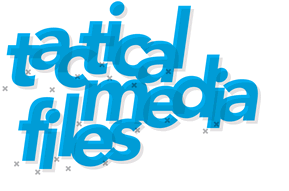Eric Kluitenberg is Head of the Media department of the Balie and is presenting ongoing research. De Balie is often seen as a center for debate but it is much more than that. It is responsible for innovative work such as the Living Archive which was formally launched last year and deals with different kinds of content. It is based on CultureBase 2004, a webdossier of the findings over the years. Living archive is used as an abstract term, as an umbrella term for different kinds of projects. What could web archiving mean for de Balie? An important question for the Balie is how to document or archive conversation? The urgency of the moment: it is connected to living processes. It is not something like a fixed object with material, physical properties but it lives in a context which is continuously shifting.
The Living Archive aims to create a model in which documentation of living cultural processes, archived materials, ephemera and discursive practices are interwoven as seamlessly as possible. Archiving here is understood as an open and dynamic process that acts upon the present and future event and is simultaneously acted upon and rewritten by the current and outcome.
The Tactical Media Files: Tactical media was always about interaction which seems counter intuitive to the classic approach of archiving as a static repository. How do you deal with these processes and how to we create a more open and dynamic structure? The Living Archive is thus understood not as an immutable repository creating a stable foundation for the production of meaning but instead as an active discursive principle emphasizing the contingency of historical development. It should have an open ending.
Theoretical inspiration behind the projects:
The Archaeology of Knowledge by Michel Foucault: The archive is no longer a collection of objects but it is a system. A system of rules that construct in a particular way and this system of rules is discursive in nature.
Cultural memory (Jan Assmann) is the idea that a certain narration of a culture’s past is never for its own sake but it is there to situate what is there now and where we are heading in the future. There is an implied necessity that the trajectory of where it comes from and where we are now suggests that there is a necessary next step for the future. The critical move is to break this logic.
Lev Manovich really sees a contradiction between the narrative and the database in Database as a Symbolic Form:
As a cultural form, database represents the world as a list of items and it refuses to order this list. In contrast, a narrative creates a cause-and-effect trajectory of seemingly unordered items (events). Therefore, database and narrative are natural enemies.
For us then, for this tactical activity the interesting is that the database, through its principle nature of refusing narrative, is a really good critical tool for deconstructing cultural narratives.
We have been creating tools in which conversations take place in a space that is captured and can be retroactively annotated. You can endlessly annotate events that happened in this space and this creates the possibility of rewriting the meaning of the event. There are over 200 programs in the archive. There is one tool that can help capture conversation as it evolves and for example with the experimental Cool Media Hot Talk Show the discussion actually starts before the event. The audience can program the entire event so the issue of editorial control is completely readressed.

The final project Kluitenberg shows is “Tactical Media Files, a ‘living archive’ for Tactical Media’s present, past and future. More than an archive, TMF is an active news and documentation tool for the evolving practices of tactical media.” Ironically enough they recently had a data crash and they haven’t been able to restore the whole archive yet. It is not so much an archive as it is a documentation tool with open editorial processes. Of course open editorial processes are well known from Wikipedia and other initiatives, they rely on a massive software structure and makes it possible to cocreate such an extensive resource, but we were struck by the relation between the politics of the archive and the quality of the archive. What we want to investigate is a shared editorial policy where we assume a certain responsability.
2 thoughts on “Archive 2020: Eric Kluitenberg – The Living Archive”